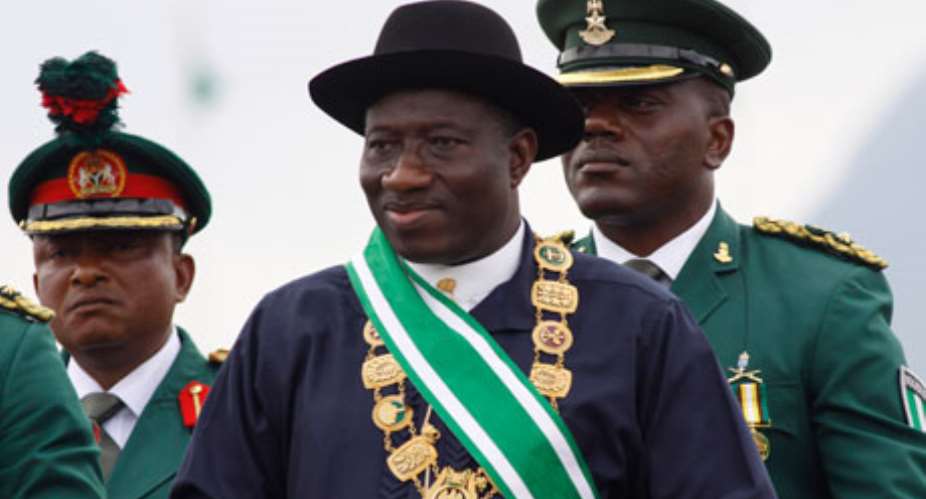Nigeria and Ghana share a lot in common. Historically, the two were British colonies sharing the British West African currency and a common airline alongside the Gambia and Sierra Leone among others.
Political developments, when they occur in one of the two countries, are likely to be replicated in the other.
Very soon the people of Africa's most populous country will go to the polls in an election in which the stakes appear to be unusually high.
We in Ghana are justifiably interested in the outcome of the polls in that country since after all, we share a lot in common and dread the effects of negative occurrences there.
Ghana is home to descendants of Nigerians who settled in this country as early as the 1800s and who have finely assimilated into the local communities through inter-marriages, even though some of them especially the Yorubas and Hausas, still maintain links with the land of their forebears while maintaining their Ghanaian citizenship.
Ghana can therefore be considered as a major stakeholder in the forthcoming Nigerian polls. That is the reason, therefore, why Ghanaians are keenly following the unfolding developments in the run-up to the critical polls.
In the heat of the boko haram insurgency, managers of local security were concerned about the spill over effects, given the constant movement by citizens of the two countries, an age-old phenomenon, in the area of trade and commerce.
In many places of prayers, especially mosques, there have been occasional prayers for an end to the violence being unleashed by the boko haram militants.
We are watching keenly the heated political episodes across Nigeria with prayers that all goes well in the polls which impact on local politics cannot be marginalised.
We have observed with elation, the introduction of reforms in the electoral system in Nigeria as a bulwark against disputes which can mar the integrity of the elections and throw the country into avoidable ado which fallouts Ghana cannot avoid.
The resilience of the electoral managers in that country has been noted by Ghanaian observers who think this is the way to go for those who are put in-charge of polls in any given country.
Let us consider details of the reforms which have taken place in Nigeria with a view to appreciating their importance for eventual adoption where necessary.
We have learnt that President Goodluck Jonathan and his People's Democratic Party (PDP) have not been amused about the changes in the electoral system and are subtly grumbling.
The national interest supersedes that of individuals in political parties and this we seek to impress upon the president who appears jittery about the outcome of the polls.
May Nigeria witness hitch-free polls in which the loser would not try any machinations that could undermine the stability of this strategic partner of Ghana.





 Minority will expose the beneficial owners of SML, recover funds paid to company...
Minority will expose the beneficial owners of SML, recover funds paid to company...
 Prof. Opoku-Agyemang has ‘decapitated’ the NPP’s strategies; don’t take them ser...
Prof. Opoku-Agyemang has ‘decapitated’ the NPP’s strategies; don’t take them ser...
 Abubakar Tahiru: Ghanaian environmental activist sets world record by hugging 1,...
Abubakar Tahiru: Ghanaian environmental activist sets world record by hugging 1,...
 Prof. Naana Opoku-Agyemang will serve you with dignity, courage, and integrity a...
Prof. Naana Opoku-Agyemang will serve you with dignity, courage, and integrity a...
 Rectify salary anomalies to reduce tension and possible strike action in public ...
Rectify salary anomalies to reduce tension and possible strike action in public ...
 Stop all projects and fix ‘dumsor’ — Professor Charles Marfo to Akufo-Addo
Stop all projects and fix ‘dumsor’ — Professor Charles Marfo to Akufo-Addo
 Blue and white painted schools will attract dirt shortly – Kofi Asare
Blue and white painted schools will attract dirt shortly – Kofi Asare
 I endorse cost-sharing for free SHS, we should prioritise to know who can pay - ...
I endorse cost-sharing for free SHS, we should prioritise to know who can pay - ...
 See the four arsonists who petrol-bombed Labone-based CMG
See the four arsonists who petrol-bombed Labone-based CMG
 Mahama coming back because Akufo-Addo has failed, he hasn't performed more than ...
Mahama coming back because Akufo-Addo has failed, he hasn't performed more than ...
